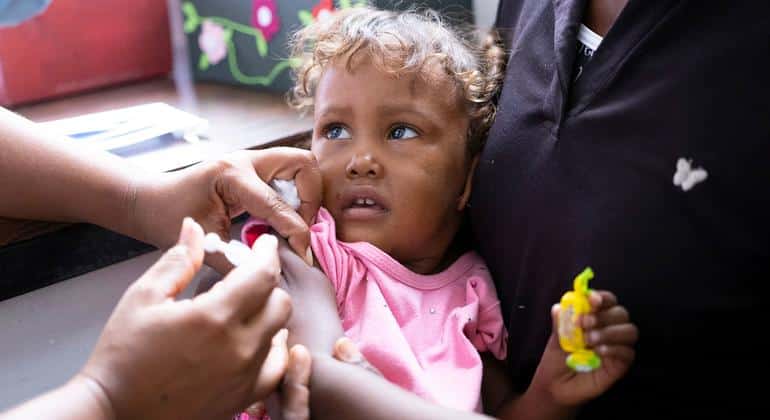The Pan American Health Organization (PAHO) issued an alert this Friday, urging all countries in the Americas to intensify their vaccination efforts and improve disease surveillance following an alarming rise in measles cases in the region. As of August 8, 2025, there have been 10,139 confirmed cases and 18 deaths related to the disease in ten countries, representing a 34-fold increase compared to the same period last year.
According to PAHO, the primary cause of these outbreaks is low vaccination coverage, with 71% of cases occurring in unvaccinated individuals, and 18% of the infected having an unknown vaccination status. Although coverage for the first dose of the measles, mumps, and rubella (MMR) vaccine reached 89% in 2024, and the second dose increased from 76% to 79%, both figures remain below the 95% threshold recommended to prevent outbreaks.
Daniel Salas, executive manager of PAHO’s Comprehensive Immunization Program, emphasized that measles is a preventable disease through two doses of a safe and effective vaccine. To contain the spread of the virus, he stressed the urgent need for countries to strengthen routine immunization and conduct vaccination campaigns targeting high-risk communities.
Data reveals that Canada has the highest number of cases, totaling 4,548 infections, followed by Mexico with 3,911 cases, and the United States, which reported 1,356. Other countries with reported cases include Bolivia, Argentina, Belize, Brazil, Paraguay, Peru, and Costa Rica. Deaths have primarily concentrated in Mexico, where most victims were indigenous and aged between 1 and 54 years old. Deaths have also been reported in the United States and Canada.
Current outbreaks are linked to two genotypes of the measles virus identified in eight countries, with outbreaks being more common in Mennonite communities in Canada, the United States, Mexico, Belize, Argentina, Bolivia, Brazil, and Paraguay. PAHO highlighted that due to the high contagiousness of the virus, it spreads rapidly among unvaccinated populations, especially children, although there has also been an increase in cases among other demographic groups.
To mitigate this crisis, PAHO has established direct technical cooperation in the region, supporting surveillance, case investigations, laboratory diagnostics, and vaccination campaigns in various countries. Strategies are being implemented, including sending experts to Mexico, Argentina, and Bolivia, strengthening surveillance systems, and working with communities to counter misinformation about vaccines. Among the critical recommendations is the need to achieve 95% vaccination coverage with two doses, strengthen rapid response systems, and encourage engagement from at-risk communities to enhance their understanding of health and the importance of vaccination.
via: MiMub in Spanish
